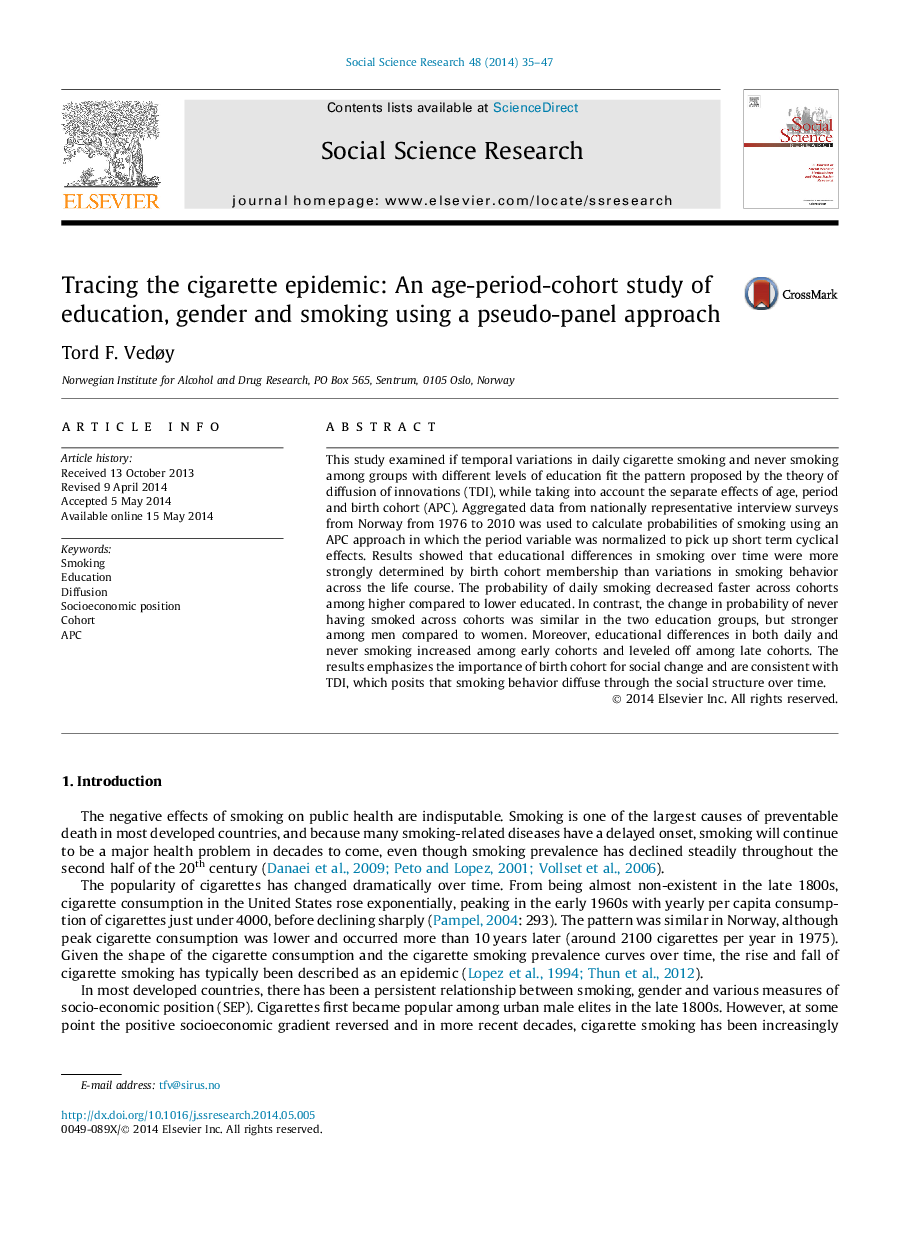| کد مقاله | کد نشریه | سال انتشار | مقاله انگلیسی | نسخه تمام متن |
|---|---|---|---|---|
| 955760 | 1476127 | 2014 | 13 صفحه PDF | دانلود رایگان |
• Few have studied the simultaneous effects of age, period and cohort on smoking.
• Smoking can be traced across age groups and birth cohorts using pseudo-panels.
• Daily smoking in Norway decreased with both age and birth cohort.
• Educational differences in smoking were a result of variations across cohorts.
• Educational differences in smoking did not vary substantially with age.
This study examined if temporal variations in daily cigarette smoking and never smoking among groups with different levels of education fit the pattern proposed by the theory of diffusion of innovations (TDI), while taking into account the separate effects of age, period and birth cohort (APC). Aggregated data from nationally representative interview surveys from Norway from 1976 to 2010 was used to calculate probabilities of smoking using an APC approach in which the period variable was normalized to pick up short term cyclical effects. Results showed that educational differences in smoking over time were more strongly determined by birth cohort membership than variations in smoking behavior across the life course. The probability of daily smoking decreased faster across cohorts among higher compared to lower educated. In contrast, the change in probability of never having smoked across cohorts was similar in the two education groups, but stronger among men compared to women. Moreover, educational differences in both daily and never smoking increased among early cohorts and leveled off among late cohorts. The results emphasizes the importance of birth cohort for social change and are consistent with TDI, which posits that smoking behavior diffuse through the social structure over time.
Journal: Social Science Research - Volume 48, November 2014, Pages 35–47
